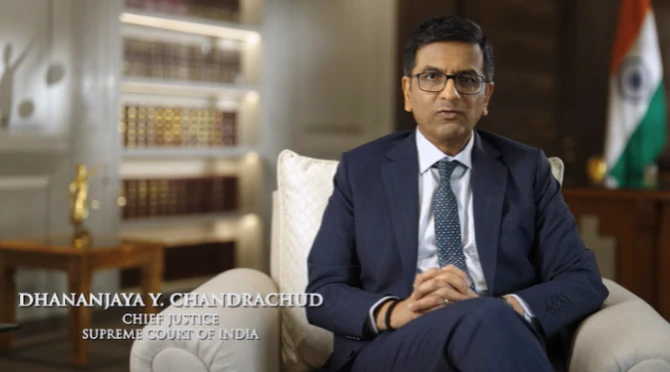
The Chief Justice of India D Y Chandrachud on Friday urged citizens with pending cases before the Supreme Court to participate in the special Lok Adalat from July 29 to August 3 for amicable and speedy resolution of their disputes.
To address the backlog of cases in the top court, the special Lok Adalat will be organized in the 75th year of the apex court’s establishment, which began on January 26, 1950, with the coming into force of the Constitution.
In a video message uploaded on the Supreme Court’s website, the CJI stated, “From July 29 to August 3, 2024, the Supreme Court is organizing a special Lok Adalat. This is part of a series of activities the Supreme Court is observing to commemorate its 75th anniversary.”
He highlighted that the judges, dedicated to the institution of justice, are concerned about the large backlog of cases. “The Lok Adalat represents an informal, technology-based solution to resolve cases involving our citizens to their satisfaction in a purely voluntary, consensual mode.”
“Therefore, on behalf of all my colleagues and the staff of the Supreme Court, I appeal to all citizens with cases before the Supreme Court, as well as lawyers and advocates on record, to take advantage of this opportunity to resolve cases swiftly in a manner acceptable to all parties involved,” Justice Chandrachud said.
Earlier, the top court stated that Lok Adalats are a crucial part of the judicial system, enhancing alternative dispute resolution to expedite and foster amicable settlements. The organization of the Lok Adalat reflects the commitment to accessible and efficient justice delivery for all sections of society.
The court also noted that cases with settlement potential, including those related to matrimonial disputes, property disputes, motor accident claims, land acquisition, compensation, service, and labor, pending before the apex court would be addressed to facilitate speedy disposal.




